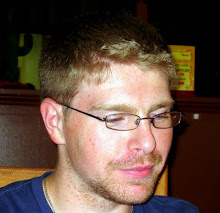The Weakness in Me
For the mainstream public, racism is an ideology of their grandparents’ time and something that was buried with them years and years ago. Yet the truth is furthermost from that train of thought, which millions of Americans calmly go to bed with each night before the sweet, tender slumber sets in.
Due to the attack on America at Pearl Harbor on December 7, 1941, an injustice was looming on the horizon. The United States in fear of cohesion shuttled some 110,000 Japanese-Americans into internment camps, mainly isolated to the Pacific Coast. Mostly, two-thirds of the Japanese-Americans were actually U.S. citizens by birth, and the majority of the Japanese-American detainees were to be left there under constant surveillance through the duration of the war. Many of the Japanese-Americans, who were forced from their homes into these internment camps, lost personal property ranging in the hundreds of millions—collectively.
Keeping in mind this is the same Supreme Court that found segregation of blacks and others races prior to this time constitutional, upheld its belief that this support of inequality and degradation of civil liberties were constitutional. And it was not until 1988 that the United States government officially apologized to the Japanese-Americans that were held on grounds of ignorance and speculation. The remaining survivors of these actions—that is, these actions which still haunt the American subconscious—were given $20,000 for cooperation of this tragic failure in American history.
September 11, 2001 scattered any and all beliefs of personal safety, national security, as well as national innocence from shoreline to shoreline. In the name of Allah, many died, without reason and/or understanding, in a matter of hours, if not minutes. The hijackers (using the faith of Islam and text of the Qur’an and the words of the Prophet, Muhammad) attempted to justify acts of nothing more than terroristic against un-expecting by-standers.
Joseph P. Gudel wrote in his article, “A Post 9/11 Look at Islam,” that “within a few days after the terrorist attacks, President Bush went to the Islamic Center of Washington, D.C., and strongly affirmed America’s support for American Muslims, as well as for Muslims worldwide.” The President and many other politicians made it clear—in the days after the attacks through and beyond the declared war against terrorism—that the “War on Terror” was not a war on Islam, because as the President stated about the pugnacious assaults of 9/11, “These acts of violence violate the fundamental tenets of the Islamic faith… The face of terror is not the true face of Islam. That’s not what Islam is all about. Islam is peace.”
Some might argue that Islam is not all peace. For example, Kenneth Woodward in a cover article for Newsweek titled “The Bible and the Qur’an” wrote on one apparent difference between Islam, Judaism, and Christianity: “Israeli commandos do not cite the Hebrew prophet Joshua as they go into battle, but Muslim insurgents can readily invoke the example of their Prophet, Muhammad, who was a military commander himself. And while the Crusaders may have fought with the cross on their shields, they did not—could not—cite words from Jesus to justify their slaughters.”
Following days after the attacks on the Twin Towers and the Pentagon, the Council on American Islamic Relations (CAIR) had received claims of personal attacks against Arab-American nationwide numbering somewhere slightly above the 350 mark. These attacks arranged from verbal to physical. But by the end of the month, the reports escalated to some 785 attacks. Many other Muslims found safety and compassion in the arms of their family, friends, and colleagues.
Although these up-surd actions of personal attacks have taken place, the U.S. government has not place Muslims into internment camps throughout the countryside; the President has denounced these attacks of ignorance and hatred. The U.S. government—having learnt from their mistakes throughout history—has not taken people by the masses from their homes placing them in detention camps for the duration of this “War on Terror,” which the President has said would last awhile. Thank God, or Allah (if you will), that we stand strong against these irrational contrivances, which tore our nation in two only half-of-a-century ago. America is still young and hardheaded, but we have proven that we can still learn.
What happened to the Japanese-Americans saddens me deeply—to believe my nation that I love so much would with nothing than speculations forsake the liberties of its citizens. However, it delights me to see that we can learn from our past mistakes, made out of fear, to move beyond ourselves and deal with our fears. I only hope we continue to learn, instead of becoming lackluster. We must improve our economical situation, our educational system, our healthcare administration, our racial inequality, our energy crisis, and mostly our understanding of the world of interdependence and how we are to maintain the edge, which other countries are rapidly moving towards.


1 comment:
huh...keep thinking
Post a Comment